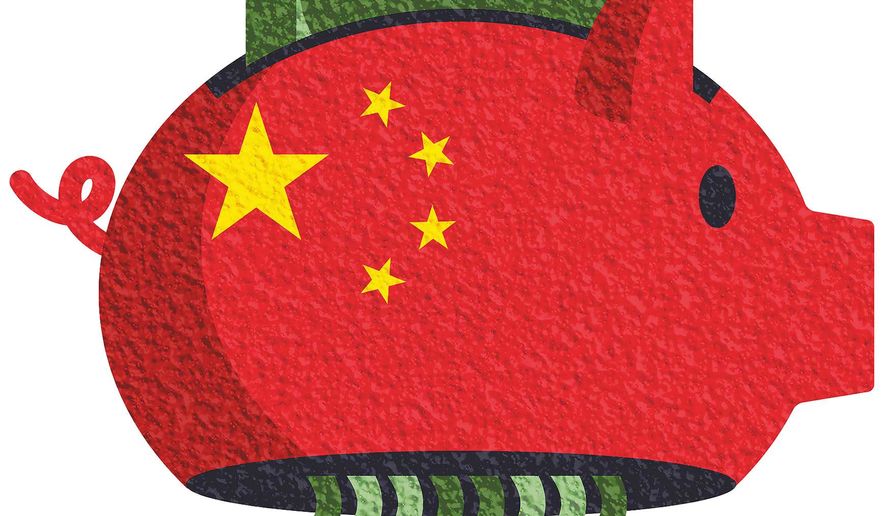OPINION:
There’s a significant schism emerging in America’s policy toward China. On one side are U.S. consumers and defense hawks concerned with China’s rise. On the other side are Wall Street investors and pundits urging wider trade with Beijing. This tension is now coming to a head as Congress considers legislation to help U.S. tech companies better compete with China. But even as members of Congress weigh proposals to rewrite U.S.-China policy, they should recognize one overriding concern — the need to remove China’s bad-actor companies from U.S. financial markets.
For decades, Chinese firms have been able to raise trillions of dollars in capital by selling securities through the New York Stock Exchange and other markets. And at present, thousands of Chinese companies and their subsidiaries are still raising money in America’s capital markets. In fact, the U.S.-China Economic and Security Review Commission (USCC) has identified 261 Chinese companies — including eight state-owned enterprises — that are listed on America’s three largest stock exchanges, with a combined market capitalization of $1.4 trillion.
The danger of funneling U.S. funds to Chinese companies has actually grown in recent years. In 2018, the Securities and Exchange Commission and the Public Company Accounting Oversight Board warned investors that U.S. regulators face challenges when conducting oversight of companies whose operations are based in China and Hong Kong. Since that time, China has consistently withheld documents required by the PCAOB. And many of these Chinese companies are complicit in Beijing’s military aims, industrial expansion and human rights violations.
In February, the House passed the America COMPETES Act — legislation intended to boost U.S. competition with China. That legislation is now vying for consideration with another China bill — the USICA — that passed the Senate last summer.
The House and Senate are currently trying to merge their respective bills into a final China package. And that’s where the American people should pay attention since Congress is debating a provision requiring annual reporting of Chinese companies present in U.S. capital markets.
Both the House and Senate bills originally contained language to identify companies that could undermine U.S. national security, violate international human rights standards or pose risks for U.S.-based investors. For the American people, such a requirement seems a no-brainer. Unfortunately, Congress is now waffling over this requirement in its final China legislation.
The original House and Senate provisions may have differed slightly, but Congress should absolutely require annual oversight of America’s financial markets. And to accomplish this, the State Department should take the lead. That’s because the State Department is the interagency head for human rights and foreign affairs — and is well-equipped to address the nuances of international policy and human rights issues. Certainly, the Treasury Department has a role. But such reporting must be as robust as possible — in order to understand the threats lurking in America’s capital markets. That includes index funds, ETFs and Chinese hedge funds — not just companies already known and listed on the NYSE.
To protect U.S. investors, these reporting requirements must be thorough and complete. A combination of both the original House and Senate language would be the most effective. The Senate’s “Section 3407” language — which stems from the Strategic Competition Act — would involve the State Department’s leadership. And the language contained in the House’s “Section 30133” would require a thorough and robust report on the actual presence of China’s financial operations in U.S. capital markets.
As recent polling makes clear, Americans overwhelmingly favor the use of economic tools to address China’s predatory trade. And they don’t want Chinese firms raising money in U.S. financial markets to boost Beijing’s global ambitions.
As Congress considers competing China proposals, lawmakers should insist on thorough reporting of Chinese entities in U.S. capital markets. Members of Congress should combine the Senate’s 3407 language with the House’s Section 30133 to create the best protections for America’s investors. Otherwise, Congress could fail to address a significant strategic concern — and allow American investors to unwittingly fund the ambitions of the Chinese Communist Party.
The decision should be obvious — transparency and accountability that serves U.S. interests, not those of Beijing and Wall Street.
• Robby Stephany Smith is national security adviser at the Coalition for a Prosperous America.




Please read our comment policy before commenting.